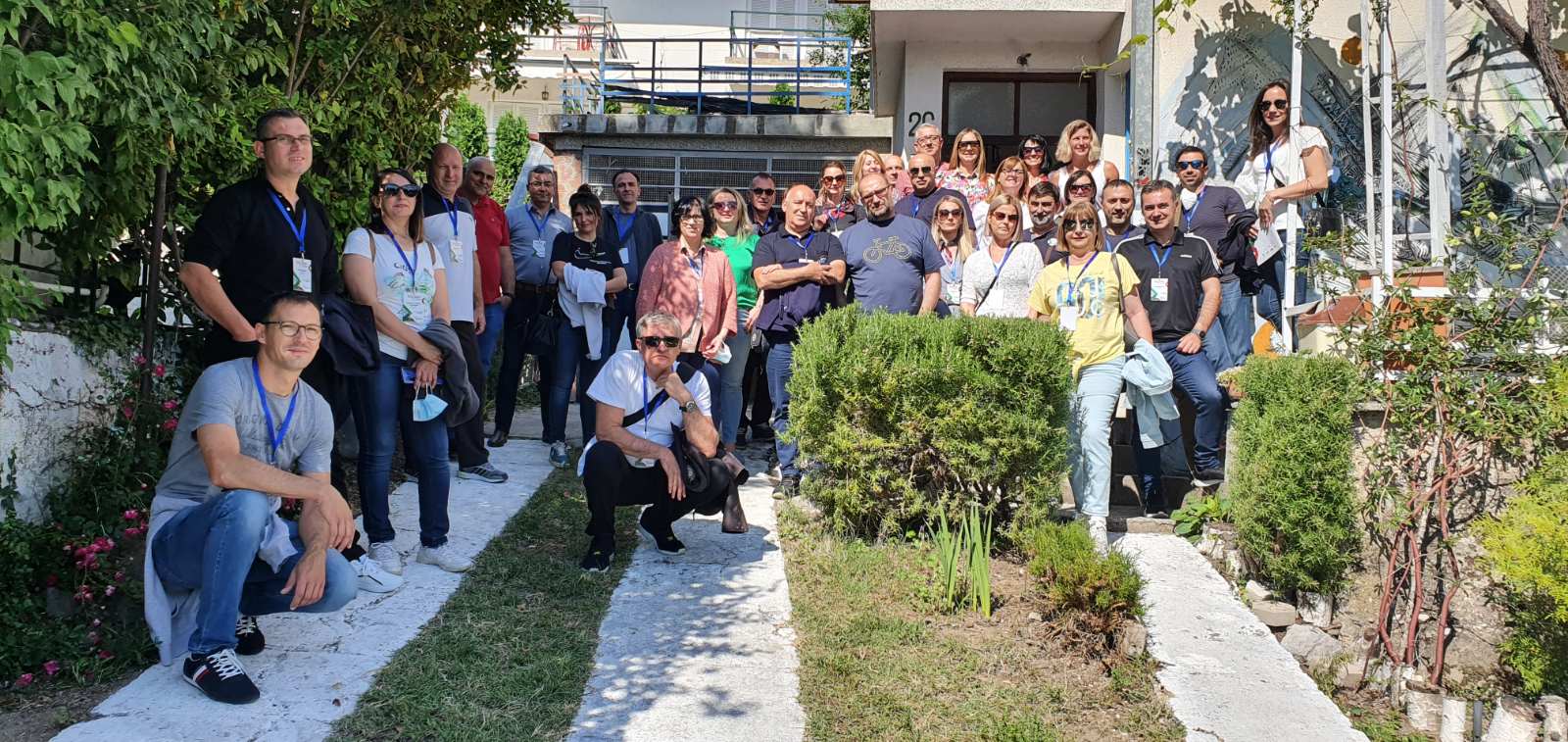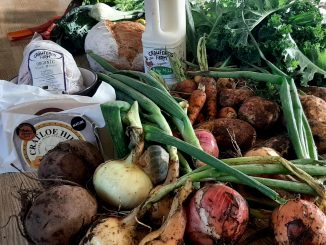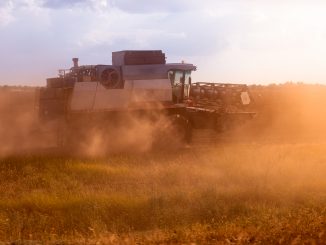
How do we envision the transformation of rural areas in the Western Balkans into attractive places “for work and residence, providing environmental sustainability, jobs, growth and a better quality of life”? This and other important topics are what makes up the substance of the Declaration of the 2nd Balkan Rural Parliament, which was held last month in Ohrid, North Macedonia. Full text of the Declaration at the link.
The second Balkan Rural Parliament took place in June in Ohrid, North Macedonia. The Declaration of the 2nd Balkan Rural Parliament is the major output of the Parliament organised by the Balkan Rural Development Network.
Building on priorities expressed by civil society stakeholders in preparation for the meeting, the Declaration sets out concerns and aspirations of rural people and what these imply for action by rural communities and for government policies.
In view of the integration of the Western Balkan countries with the European Union, the foreword to the Declaration highlights that rural development is one of the “major driving forces” that can accelerate the accession process.
The Balkan Rural Parliament declares its vision and requests to the governments of the Western Balkan countries. A stated aim is to transform rural areas “to an attractive place for work and residence, providing environmental sustainability, jobs, growth and a better quality of life.”
The Declaration calls for integrated rural development policy to improve quality of life, as well as a number of actions for reviving rural areas in Western Balkan countries. These actions relate to environmental and climate action, building sustainable food systems, rural digitalisation, the LEADER approach, rural youth, gender equality, social entrepreneurship, economic diversification and regional cooperation.
Download The Declaration of the 2nd Balkan Rural Parliament
Below is an extract from the Declaration, adopted by consensus of all participants of the 2nd Balkan Rural Parliament in June 2021.
Better quality of life through Integrated rural development
The needs of the rural population are complex and the issues are more of a social nature than purely agricultural. Better quality of life in rural communities should be provided for everybody – old and young, men and women. This calls for a well thought change from a longstanding tradition of rural development policies to an integrated policy approach. It is necessary to develop an effective mechanism for in depth consultations and coordination between government institutions, being responsible for different aspects of rural life.
Actions for reviving of rural Western Balkans
Environment Protection, Climate Change and Green Economy
Substantial efforts are made by countries worldwide to make their development greener and more environment-friendly, with the EU clearly stating its own plans of becoming the world’s first climateneutral continent by 2050 reflected in the EU new growth strategy – the Green Deal.
Leading to the Western Balkans (WB), the EU has made it clear that the European Green Deal will apply to the countries in the WB region as well, with targets to be agreed both by 2030 (Agenda 2030) as well as 2050. With this in mind, the so-called “Green Agenda for the Western Balkans” will represent an important framework for the WB countries.
The concept of the Green Economy has been gaining significant importance in the process of sustainable development of countries globally. The green economy is one of the important pillars in Green Agenda and therefore deserves a special attention in further development of Western Balkan society. This task cannot be achieved alone by governments, but also by civil society and businesses of the countries, which need to work on “greener” and more sustainable ways of doing business and living.
Sustainable food systems
The existing food systems in Western Balkan are not appropriate to respond to increasing recurrence of pandemics, droughts, floods, forest fires, new pests and other external threats that discourage rural people to continue with agricultural activities and to ensure sufficient supply of affordable and healthy food for citizens. Therefore, the shift to a more sustainable food system is needed to bring environmental, health and social benefits, offer economic gains and ensure that resilience to future crisis is secured and quality of life of our people is improved. Western Balkan should utilise the Farm to Fork strategy providing support to inventing different approaches in food system promoting more fair and inclusive agriculture with more focus on organic and regenerative agriculture principles. The small-scale farmers which are common characteristic throughout all Balkan regions should be well addressed with their needs ensuring their sustainable livelihood.
Digitalization in rural areas
Digital, economic and social transformation throughout Europe is increasing the pressure on villages and their citizens, businesses and public bodies to innovate and to adapt continuously. They cannot just sit back and wait for digital solutions to come to them. They need to become ‘smart’ players and leaders in their own digital transformation. The long-term aim of rural digitalization is not just to catch up with urban areas and bridge the digital divide, but also to build fair partnerships with cities and rural communities. This can encourage rural areas to progress through the various stages of a genuine digital transformation – from digital isolation to connection, and to becoming digital players in their own right.
LEADER/CLLD
Rural Development Networks in WB, should continue to be an active participant in LEADER type projects and should search actively to secure funds for Local Action Groups (LAGs) to develop solutions to local problems where the ,one-size-fits-all’ national policy cannot not be effective. Strengthening the bottomup approach will also facilitate the alignment to the EU strategy for Community-led Local Development (CLLD), which puts people’s experiences and knowledge on the driving seat for finding local solutions.
We urge governments to build upon the work of the BRDN member networks, and to enlist their continuing involvement, as the CLLD/LEADER approach is getting institutionalized in the context of National Rural Development Programmes and IPARD. Technical Assistance measures within IPARD should be used to build the capacities of public institutions (Ministries of Agriculture, Paying Agencies) and Local Action Groups (LAGs) engaged in the LEADER process.
Rural Youth inclusion and participation in the rural development process
There is a worrying process of rural out-migration of young people in Western Balkans, driven by the unequal opportunities for education, careers and social life. This exodus distorts the balance in the population; reduces the workforce and the potential for economic development; and can cause a vicious cycle of falling population, loss of rural services and further weakening of rural communities. We believe that ways must be found to encourage and enable young people to stay in or return to the countryside. Young people need a variety of satisfying and fairly-paid jobs, a well-targeted education system, access to land, housing and credit, social and cultural activities suited for young people, and support for young farmers, new entrants and entrepreneurs. The interests of rural youth should be put at the Centre of rural development strategy and the policies should include specific measures targeted at young people. Investments are necessary in better education and vocational training to close the gap between quality of education and the needs of modern economy, sport facilities, and child care. Improvement of the quality of roads and public transport is necessary to facilitate commuting to rural towns. The provision of transport of young people to places of education and training is necessary to support their upskilling and career opportunities. We call on governments and civil society to recognize and meet the needs of youth in rural areas, and to enable young people to actively participate in decision-making processes and rural initiatives.
Promotion of gender equality and integration of gender mainstreaming in national and regional rural development policies
We believe that women should be recognized as key drivers in rural development, and as guardians of tradition and heritage in rural areas. We call on governments and civil society to recognize the needs of women; to support and stimulate their creative role in rural life through active support programmes; and to ensure their inclusion in decision-making processes, for example within community service organisations and local action groups. Rural development policies should be gender sensitive and increase the capacity of rural women and their organizations to drive in all aspects of rural life. Municipalities should provide support to training in leadership, business entrepreneurship, IT, new technologies, which is paramount to achieve better involvement of females in economic and social development, and overcome some deeply rooted prejudices. It is necessary to use the experience of NGOs and donor communities in this process.
Social entrepreneurship as a model for rural community development
In the rural areas of the Western Balkans, growing numbers of people are affected by poverty and social exclusion of different kinds. Sustained effort is needed in order to promote their inclusion and full participation in society. Social entrepreneurship may have a key role in that process, by providing social and other services- for example care for old people, employment for handicapped people – which are not adequately provided by the public and private sectors. Social enterprises may include the processing of local products, the continuance of traditional skills, the installation of renewable energy sources, and other activity which arises from identified local needs and which enables the employment of marginalized groups. In many parts of our countries, this is a relatively new idea: but we believe that it has significant potential. We call on the governments and European institutions, CSOs, and CSO networks, to actively participate in the development of social entrepreneurship, by sharing good practices, creating support policies, developing capacities and providing professional support.
Rural tourism as an opportunity for economic diversification in rural areas
We believe that the culture and heritage of rural areas in the Western Balkans should be seen as a major asset. They underlie the identity and solidarity of rural communities: they offer potential for strengthening of rural economies; they can be a powerful resource for the promotion of tourism. We see much potential in these countries for using this asset of culture and heritage to secure the diversification of economic activities in rural areas, beyond the basic industries of forestry and farming. This is not a simple process. It may involve the recognition and protection of heritage features, such as historic buildings, ancient monuments, wildlife sites, religious centres and fine landscapes; the nurturing or revival of traditional skills and crafts; the formal recognition of regional products such as wines or cheeses; the skilled conservation of relics and museum resources; interpretation, storytelling, festivals and traditional customs; and much more.
Capacity building of BRDN member networks and their constituents
The BRDN member networks together with educational institutions, EU partner organizations (PREPARE, ELARD, ENRD), and the donor community, should work to increase their capacities and the capacities of their members to better communicate the needs of rural population and increase their technical expertise on issues related to integrated rural development.
Strengthening of regional cooperation
Regional cooperation builds understanding between neighbours, nurtures democracy and provides crossfertilization of ideas and actions of countries in the Balkan region. BRDN will continue to support CSOs from rural areas to actively participate in the regional cooperation, play a central role in the regional initiatives, and take a lead in further cooperation and projects in the area of rural development.
Moving towards EU integration
BRDN will
- contribute to the EU integration process by mobilizing its resources and channels of influence through advocacy and lobbying at national and European level to accelerate the EU integration process by addressing the needs and situation in rural areas of the Western Balkans.
- increase the communication with the European Union and facilitate the advocacy of the member networks based on the achievements and interests of numerous rural stakeholders and initiatives in the Western Balkans.
- promote a common advocacy approach related to the rural development policies and programs of the WB contributing to the EU integration. Such an approach will be effective only if the WB policy and decision makers consider the rural voice as part of the integration process.
Download The Declaration of the 2nd Balkan Rural Parliament
The Balkan Rural Development Network (BRDN) is a regional network of NGO-based rural development networks in the Western Balkans (WB), with its seat in N. Macedonia, bringing together the rural development networks from North Macedonia, Serbia, Montenegro, Croatia, Bosnia and Herzegovina, Kosovo and Albania. The interest for starting BRDN was a recognized need by the rural development networks in the Balkans to establish a platform through which they could regularly exchange information, experience and knowledge, network and cooperate together in order to increase their effectiveness in the work with their constituents on national level, but also to enhance their influence in the rural development at regional and EU level.
More
Western Balkans | Reviving Rural Areas & Moving Towards EU Integration
Flagrant Vagueness | Commission Launches a Vision Without a Strategy
Working Document on “A Vision and Strategy for Rural Europe – Now.”




